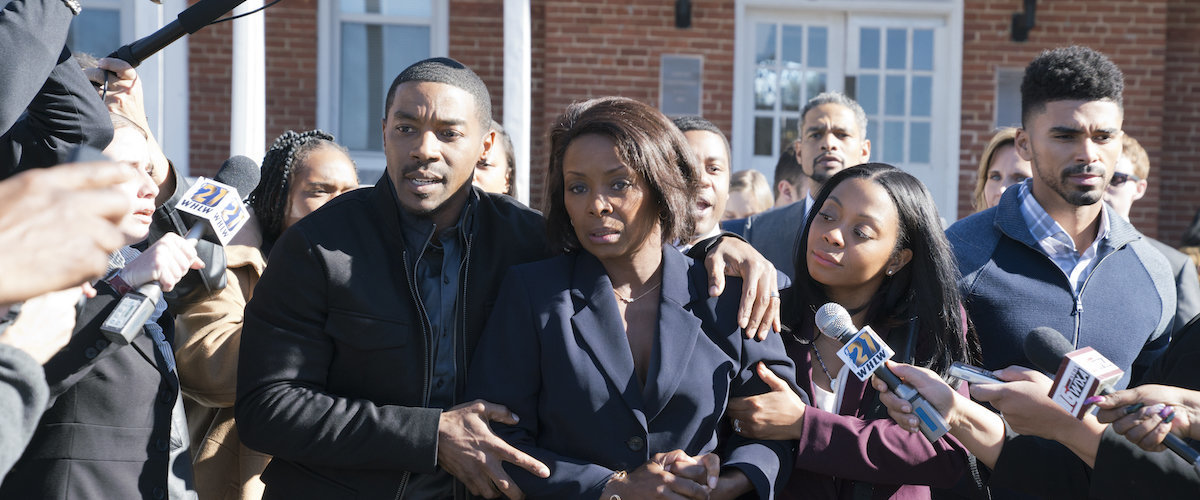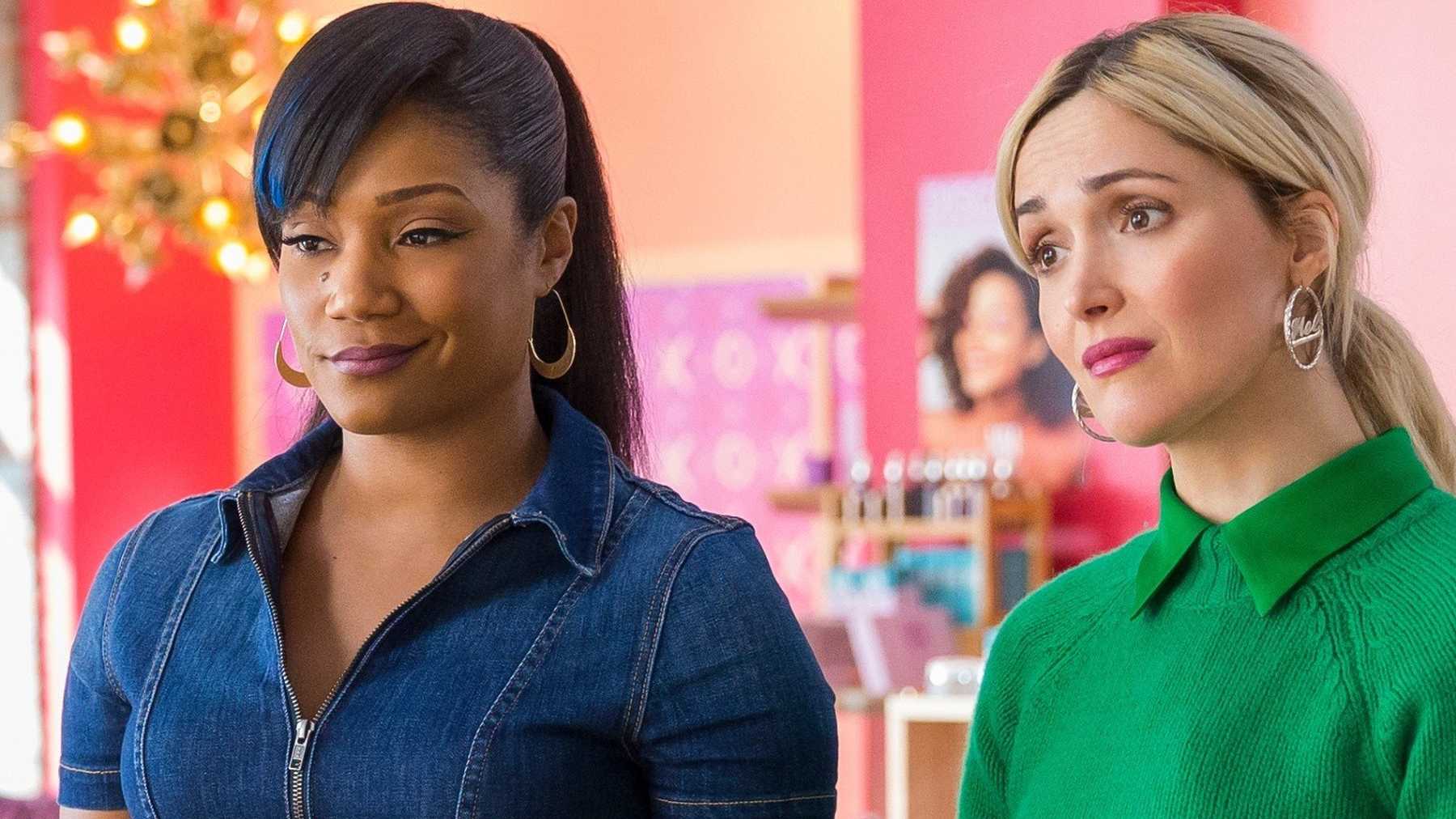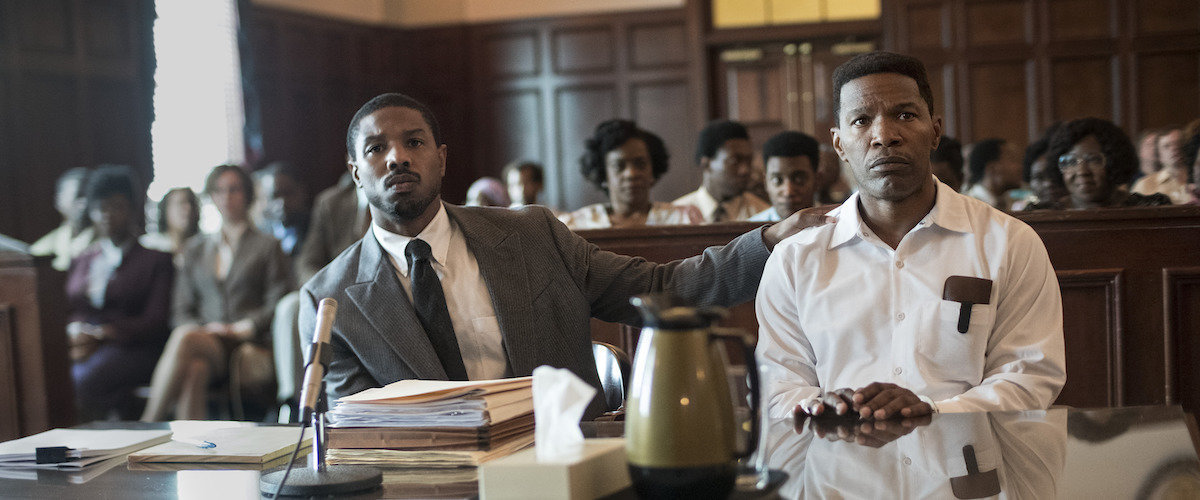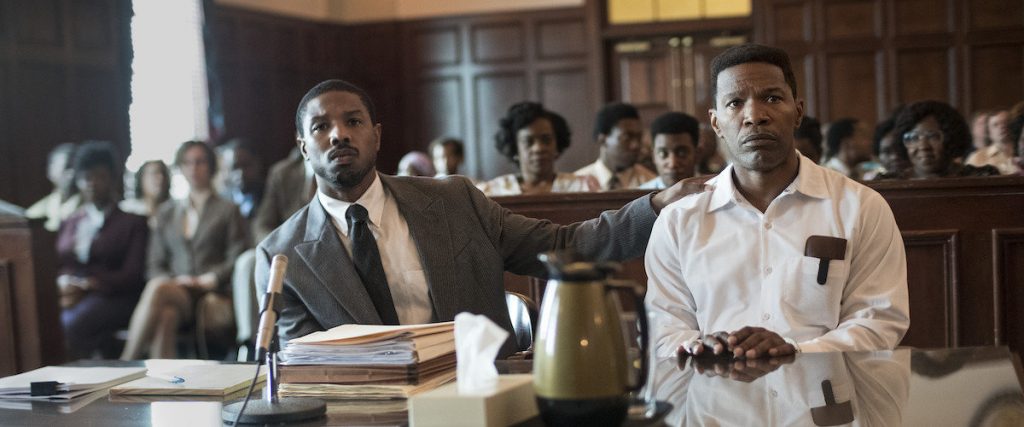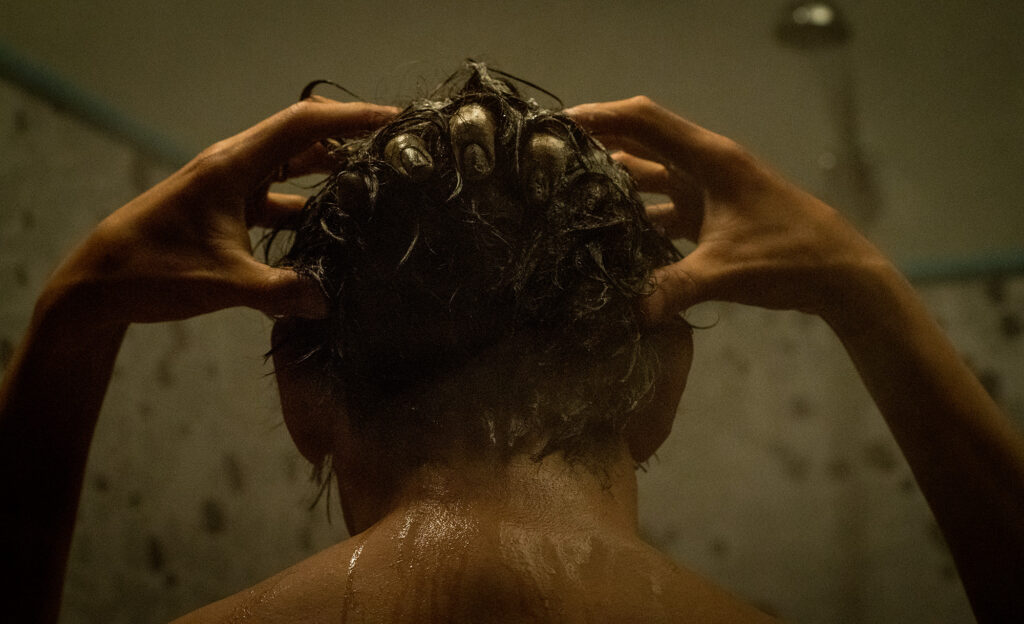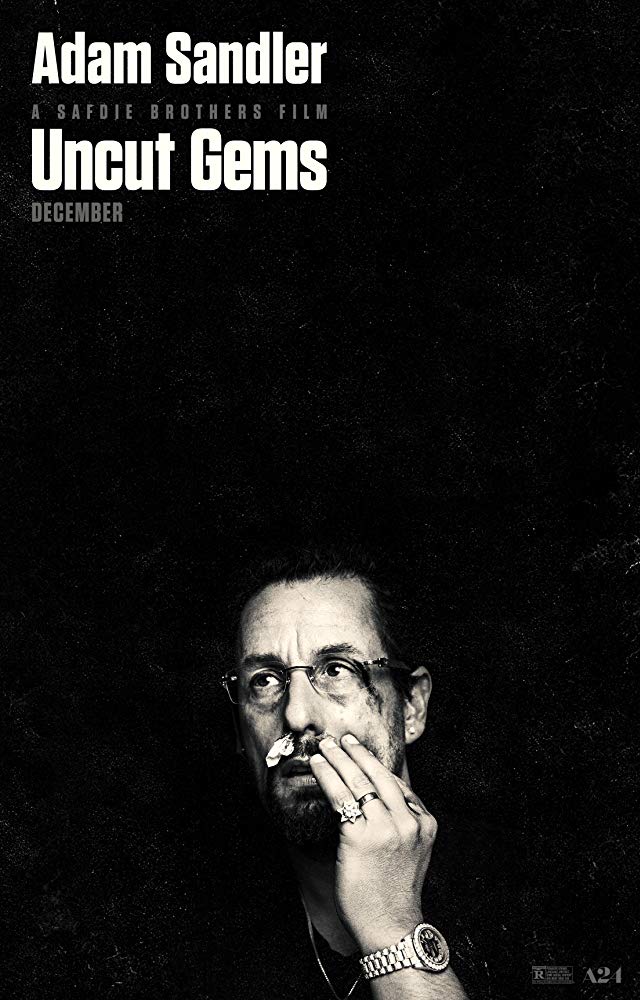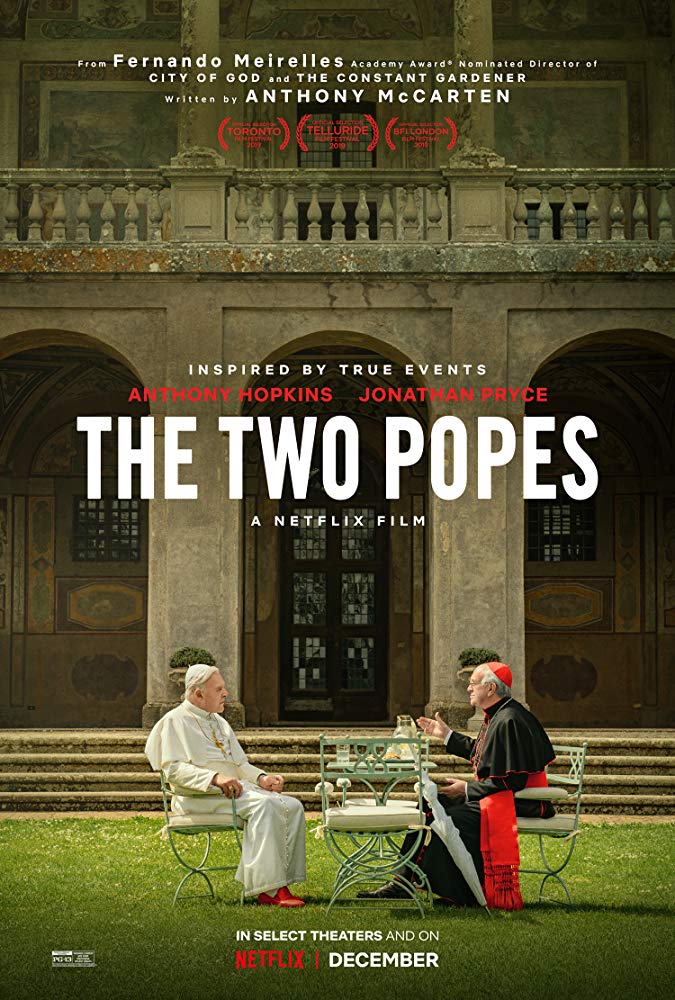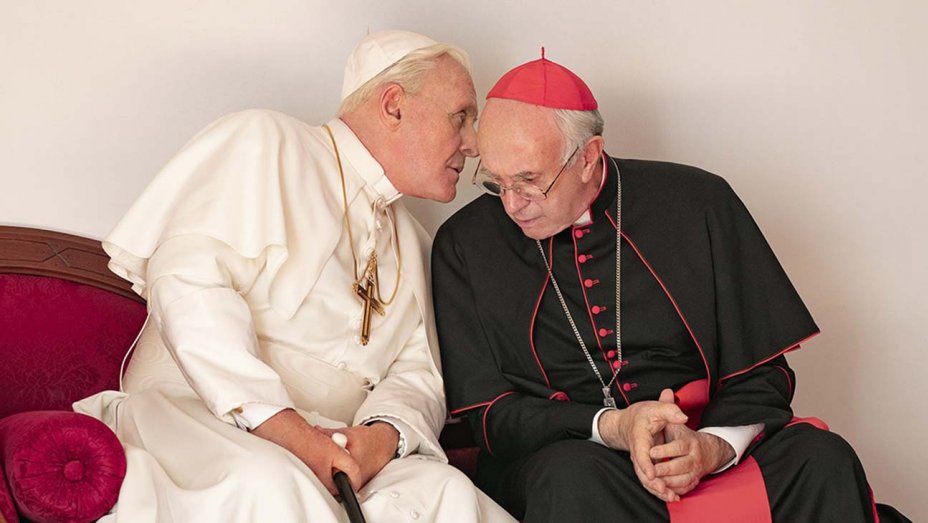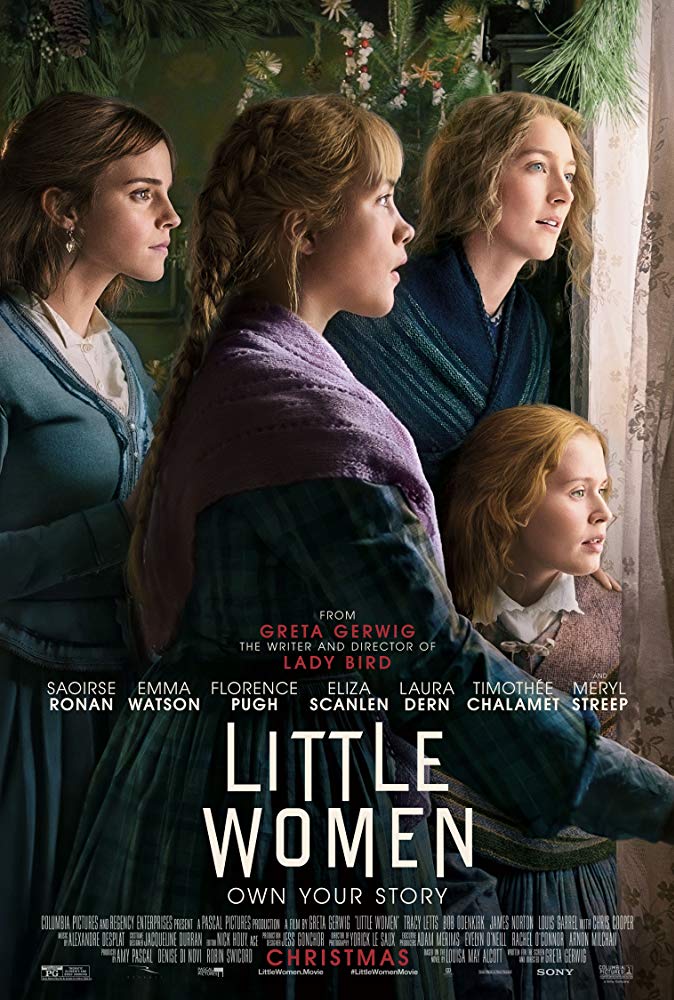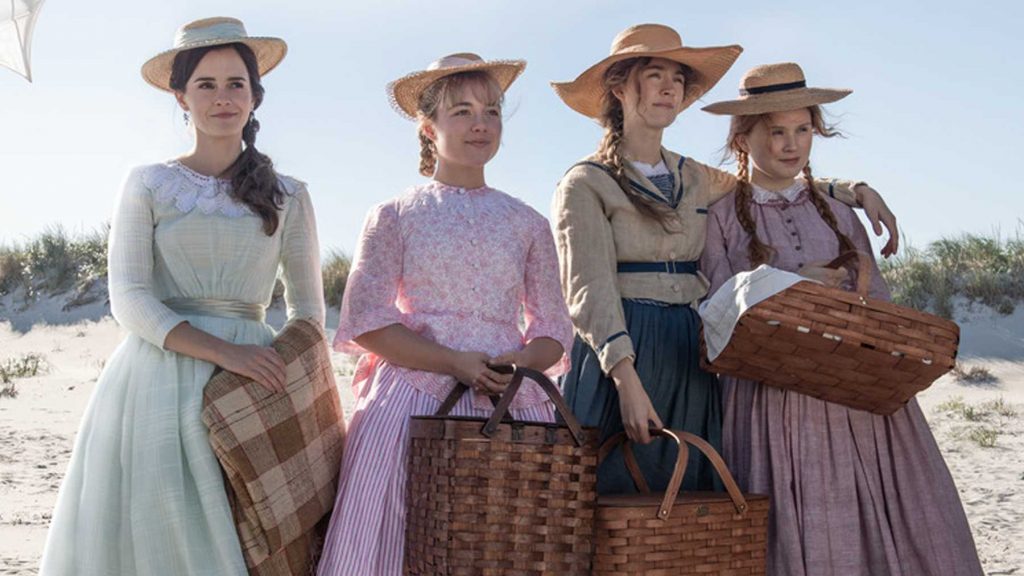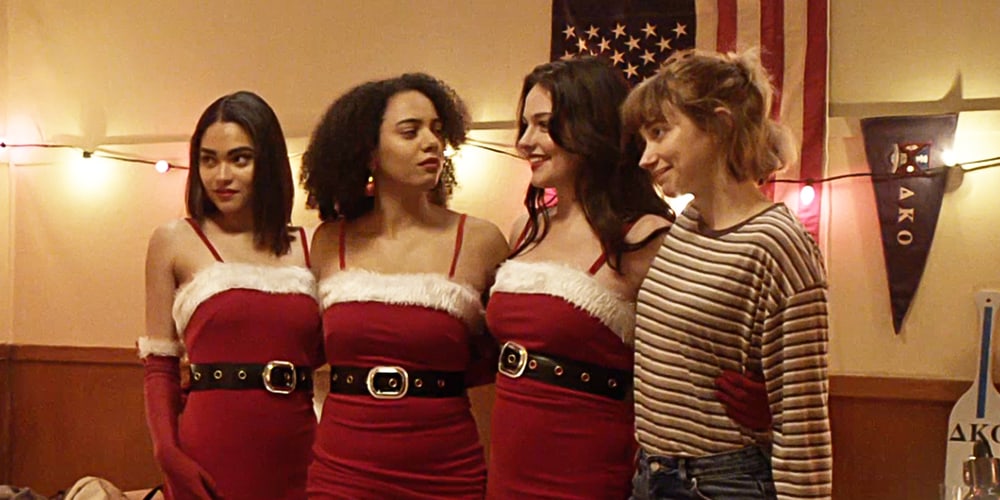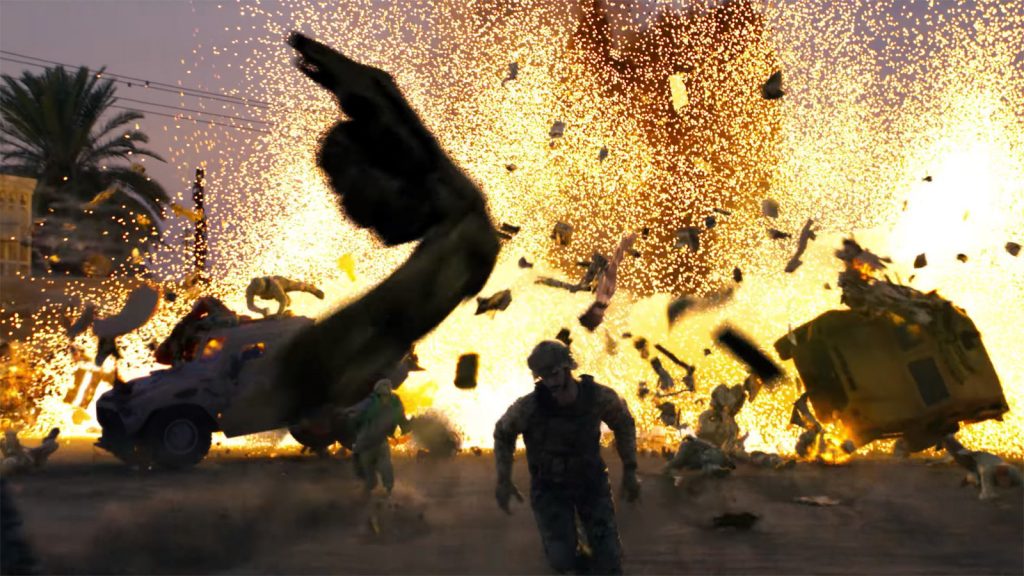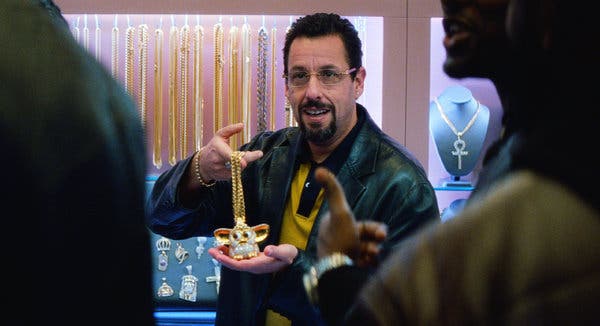
The experience of your physical and mental senses being run through the gauntlet of a pressure cooker has never been more fully realized. Your heartbeat thumps with each new anxiety-filled sequence that won’t resolve itself, and an escalation of stakes conjures sweat to trickle from the surface of your forehead. Even in the quietest of moments, there is a sense that the viewer and the main protagonist will never find themselves out of the massive black hole that has swallowed them whole. The Safdie Bros “Uncut Gems” is a cinematic experience that demands full attention with its cascading thrills, visual/auditory richness, and Adam Sandler’s tour de force performance.
Set in the year 2012, Howard Ratner (Sandler) is a jeweler stationed in New York City who enjoys an impressive clientele that features a who’s who of musicians and athletes desiring custom pieces that stand out. Ratner receives the delivery that he has been salivating over for months, a rock filled with colorful gems straight from the country of Ethiopia. Ratner hopes to score a big windfall of cash from this prized possession in the form of an auction listing, while also getting serious loan sharks and bookies off his neck over uncovered debts. The plan does not go well due to unfortunate circumstances brought on by mishandled gambling decisions and the chaos of Ratner’s personal life unfolding behind the scenes, sending him traveling down a slippery slope of heightened drama and personal turmoil that can prove undo his quest for a high heaven payday.
Adding to the massive characterization of this New York City thriller is Daniel Lopatin’s chilling score, featuring a mixture of 80’s inspired synthesizers, monk chanting, jazz-influenced instrumentation, and pounding drums. The musical accompaniment is important to creating an atmospheric high on par with the thrilling events provided by the story. This is one of the best examples of the year in how a score can serve as a mirror to the emotional texture a film wants to supply the audience. There is an immersion element present in the sound design that is chock full of details and pays emotional dividends. One great example is a sequence that takes place in a club where the insurmountable boom of early 2010’s rap and R&B surround the auditory landscape, filling viewers with an actual rendering of the chaos present on the screen
Sandler proves once again that he is not just useful in the comedic arena but can also encapsulate larger than life characters. He became Howard Ratner down to the accent, personality, walk, and contradictions. It is fascinating to watch him lose himself and take over the DNA of the film with a performance that is equal parts compelling, entertaining, and award-worthy. Lakeith Stanfield is wonderful in his supporting role and continues to travel upward to respectability in the cinema world. Basketball enthusiasts will be ecstatic to see Kevin Garnett have a major role in how this film unfolds, too. He is such a loveable cult of personality, playing himself, which is far from a fault but icing on the cake.
The Safdie Brothers feel right in their element with another adrenaline-filled ride that follows their previous breakthrough “Good Time”. This effort strikes white-hot with the handling of tension and offers a great exploration of morality in the dangerous world of high stakes gambling. The intense direction sparks growing suspense and dread that never leaves. Quick cuts, push in close-ups, and panning shots are employed with a showmanship style that captivates. It can be very hard for most films to keep up high energy because there is a risk of driving off the tracks and losing a sense of newness present in the tone. The Safdie Brothers have incredible talent displaying prominent control which keeps the audience hooked into what will be coming around the corner. This all leads to a shocking conclusion that will not leave my mind even with the advent of a new decade. Let’s just say that viewers will get their money’s worth, but it may not be in the manner of what they expected.
Darius Khondji’s work as cinematographer is visually powerful and hard to keep from gawking in amazement. The use of neon and fluorescent lighting in evening vignettes feels natural to the worldwide reputation of New York, also known as “The Concrete Jungle”. There is an air of grittiness, but also classy opulence, in the production design; apartments and houses that give off the style of high taste even with the characters and sequences involved being rife with uncertainty and sometimes illicit behavior. The look of a flashy extravaganza complete with luxury but embodying the same surface area as a Scorsese crime drama in homage brings the film home in a majorly impactful way.
“Uncut Gems” is a film that will test your strength and stamina in how much intensity one human body can handle. It is a drama that builds and builds on entertainment, suspense, and fascination until it releases it all in a climactic supernova, making it an integral part of the year in cinema.

Caless Davis is a Seattle-based film critic and contributor to the Feelin’ Film Podcast. He loves any discussion of film and meeting new people to engage in film discussions on any subject. You can follow him on Twitter and Instagram.


